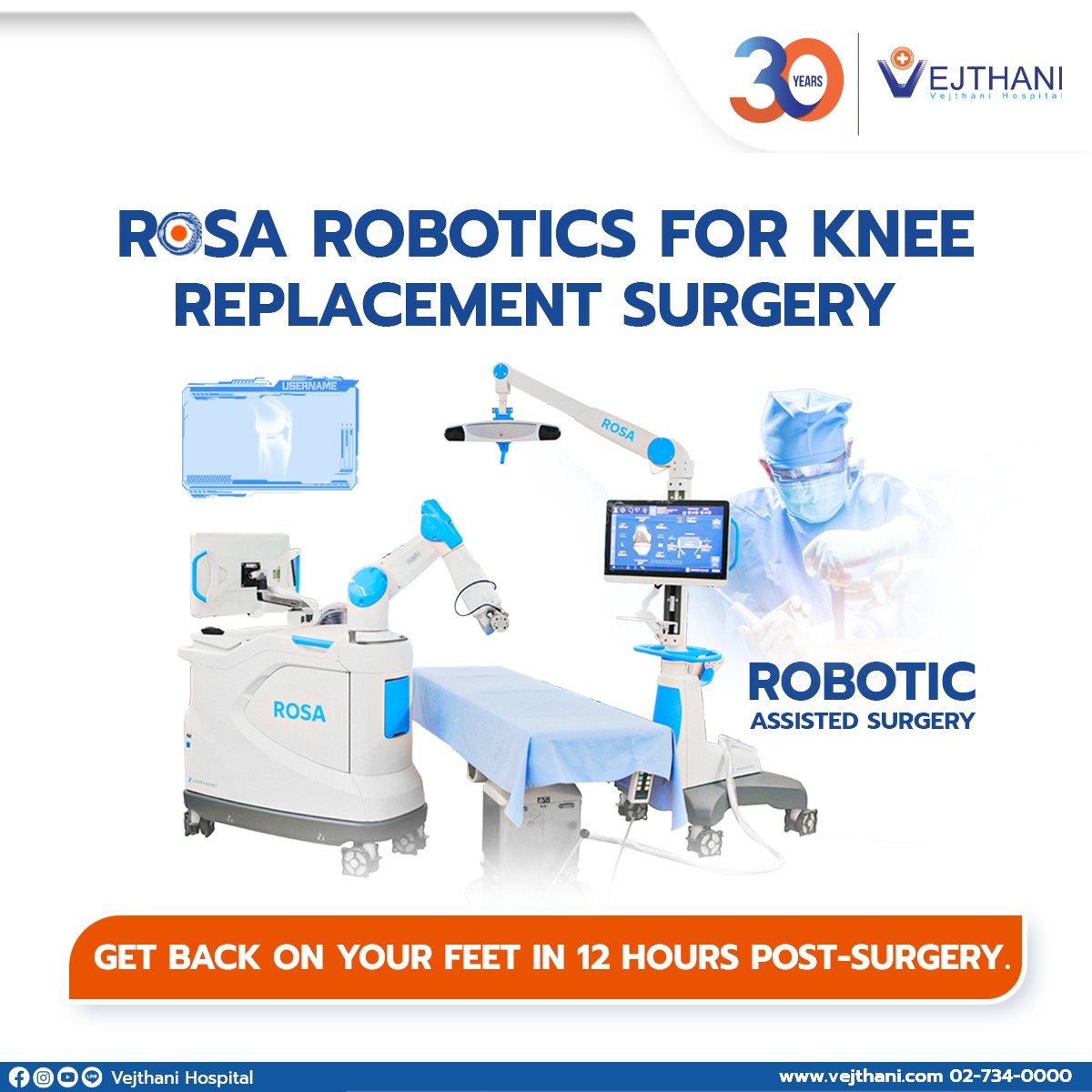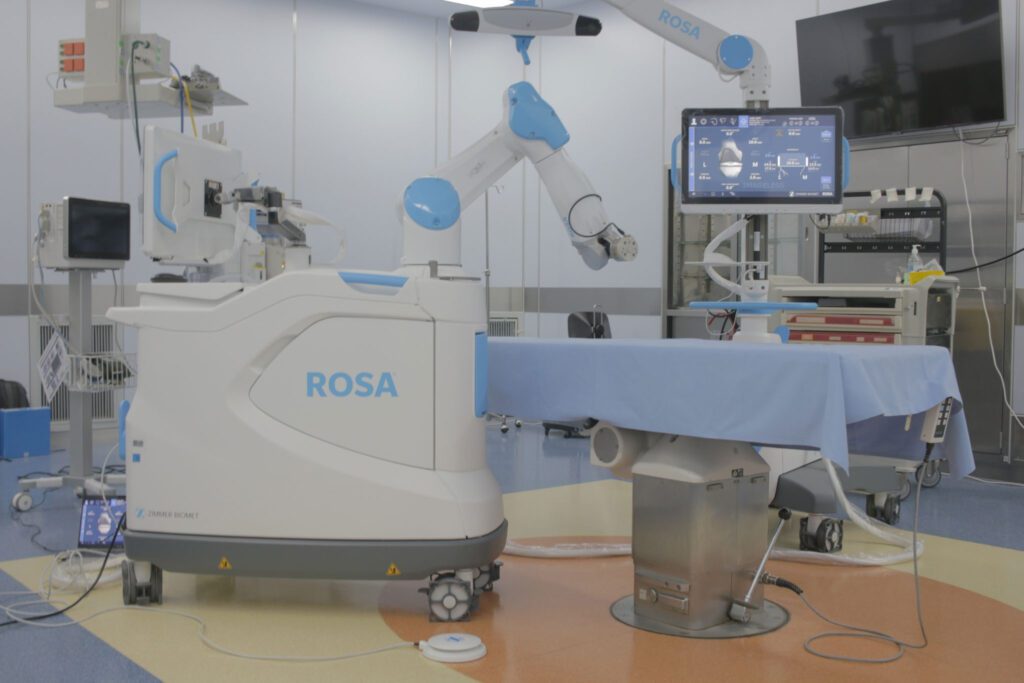

Have you ever experienced pain in your knee when standing or sitting? It could be a warning sign of knee osteoarthritis. The disease is commonly found in every part of the world, particularly among the elderly. The symptoms tend to severely affect the quality of life. However, today, a technological breakthrough has been introduced to treat osteoarthritis. With the help of robotic-assisted surgery known as Rosa Knee, patients are able to stand and walk again within 12 hours post-surgery.
Associate Professor Lieutenant Colonel Dr. Bura Sindhupakorn, an orthopedic surgeon specializing in Total Joint Reconstruction at Vejthani Hospital, said that the deterioration of the cartilage surface of the knee joint causes osteoarthritis. Usually, the cartilage surface helps smoothen knee joint movement, prevent friction, and serve as a weight-bearing support for the body. When the knee joint begins to deteriorate, it causes joint stiffness – as your knees are stuck in the morning or you can’t move them very well after waking up. You may also have pain, swollen knee joints, cracking noise and weakness.
4 Factors that Cause Osteoarthritis:
- Age: The older you get, the greater your risk of developing osteoarthritis.
- Sex: Females are more likely to develop osteoarthritis than males. Although the reason is unclear.
- Improper posture: Kneeling, squatting, sitting cross-legged.
- Underlying Diseases: Rheumatoid deteriorates knee joints faster
To treat knee osteoarthritis, doctors will consider the symptoms and severity caused by the deterioration of knee cartilage. There are several methods of treatment, starting with lifestyle modifications, nutritional supplements for knee joints, medication to reduce inflammation of the knee joints, and physical therapy combined with medication. Various types of injections are also used, such as lubrication injections or platelet-rich plasma (PRP) injections. The last method is a surgical treatment for patients with severe conditions of osteoarthritis.
In the past, a conventional method was used to perform total knee replacement surgery. It involved making a large incision, approximately 12 cm long, through which the surgeon would determine the position for placing the implant. However, this method often encountered limitations during the surgery process, whether it was the surgeon’s decision-making process or the large incision that caused postoperative pain and slower recovery.
Currently, Rosa knee, a robotic technology, is used in knee surgery. It comprises two robotic arms that control and determine the positioning of the knee surface. The technology also assists in measuring the equipment and dimensions of the prosthetic knee. It even has built-in software for planning and simulating surgeries in advance, resulting in more precise and accurate surgical outcomes.


In addition, the Rosa knee robot-assisted surgery does not require large incisions like before. It eliminates the need for invasive procedures within the bone cavity, which could lead to significant pain and blood loss. The benefits undergoing knee replacement surgery with the Rosa Knee Robot are:
- High Accuracy: The robotic arms enhance the precision of the surgery while reducing the chance of human error.
- Small Incision: The surgical incision is smaller than the conventional method.
- Reduced Blood Loss: Less blood loss compared to conventional surgery.
- Reduced Pain: Patients experience less discomfort and pain.
- Fast Recovery: Patients recover faster, have shorter recovery time, and can stand and walk within 12 hours.
- Improved Mobility: Patients gain better mobility after the surgery.
Doctors recommend taking care of yourself to prevent early knee joint deterioration. Controlling your weight can be one of the preventive measures, as body weight is directly related to osteoarthritis. Studies show that approximately 4% of the weight from every 1-kilogram increase will go to the knee joint. Also, avoid improper knee use, such as carrying heavy objects, walking long distances, sitting cross-legged, and squatting for long periods. Take caution during physical activities, especially extreme sports and exercises, to prevent serious knee injuries.
For more information, please contact
Hip and Knee Center, Vejthani Hospital
Call: (+66)2-734-0000 Ext. 2222
English Hotline: (+66)85-223-8888
- Readers Rating
- Rated 4 stars
4 / 5 ( Reviewers) - Excellent
- Your Rating



























